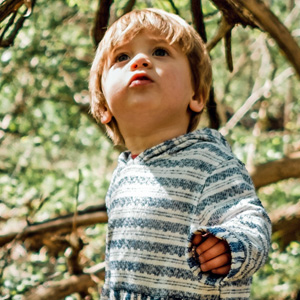Raising bounce-back kids
© Caroline Witten-Hannah for Auckland Therapy Blog, 11 May 2018.
Preparing children for the ups and downs of life
 There is a general opinion that we should try to protect and safeguard our children from difficult things in life.
That we should make sure our children have what they need so things won’t go wrong in their day-to-day life, and generally mollycoddling them to try and ensure things go smoothly.
There is a general opinion that we should try to protect and safeguard our children from difficult things in life.
That we should make sure our children have what they need so things won’t go wrong in their day-to-day life, and generally mollycoddling them to try and ensure things go smoothly.
Unfortunately anxious overprotected children are appearing in my therapeutic work on a daily basis.
Overprotecting children feeds anxiety
The trouble is that life is not smooth and predictable and overprotecting children feeds anxiety.
Adversities, difficulties and the unexpected do inevitably happen. So how can you, as a family, foster the necessary qualities, behaviours and attitudes so your children can survive and thrive, through life’s inevitable adversities?
Start early
The earlier you start with this goal in mind the better. Don’t tell your toddler that a fall will never happen again and make a big fuss but gather them up, and calm and comfort them. Then as soon as possible help them to focus on moving forward again with the minimum of fuss. I observed a toddler fall over recently. He said “oopsie daisy” when he hurt himself and put a smile on his face before getting up and carrying on. Lets hope he continues to do this for the rest of his life.
Normalise mistakes
As a family, talk about mistakes and point out that this is how we learn things. Tell your children about your mistakes and what you learned. Tell them everyone makes mistakes and it is normal to do so. Say often that mistakes are opportunities to learn. Let your kids mess up so they learn from their mistakes. For example - it can be hard to do but send them off to school without checking they have their lunch, homework, sunhat packed for the day. But if they mess up once they are unlikely to make this mistake again.
Foster independence
 Help your kids to manage their emotions and to find positive ways to calm themselves. Teach them that all feelings are ok and help them learn to talk about their thoughts, worries and feelings. They need positive outlets for their anger rather than holding it inside and teach them to seek comfort when sad.
Teach your children to problem solve difficulties in all sorts of situations. Don’t give them the answers but rather let them figure things out for themselves. If children can handle what is thrown at them with confidence it will be enormously beneficial to their self esteem and foster their independence.
Help your kids to manage their emotions and to find positive ways to calm themselves. Teach them that all feelings are ok and help them learn to talk about their thoughts, worries and feelings. They need positive outlets for their anger rather than holding it inside and teach them to seek comfort when sad.
Teach your children to problem solve difficulties in all sorts of situations. Don’t give them the answers but rather let them figure things out for themselves. If children can handle what is thrown at them with confidence it will be enormously beneficial to their self esteem and foster their independence.
Model resilience
All children need to know and accept that life is full of ups and downs. Don’t shelter your child from disappointments and unfortunate events. Rather model your own resiliency and be calm, consistent and positive despite the difficulty or upset.
Children need to experience disappointments and develop attitudes to these events that will help them remain positive and optimistic toward life in general. Develop a culture within your family where you talk about adversities and disappointments openly in the family. Offer emotional support to each other and comfort each other and listen. As a family make a conscious effort to be positive, hopeful and optimistic. Look for the up side when you suffer a setback and share these thoughts.
Take action
If your child is developing negative thinking take deliberate action to change this before it becomes entrenched:
- Nurture your child’s positive self view and teach your children to love and like themselves.
- Give them lots of praise and positive affirmations. It is important they learn good self care while they are young.
- Teach your children to be able to ask for help. You want children to grow up being able to reach out to others for support and advice and comfort.
- Teach your children to be grateful and appreciative. Speak as a family about the ways you are fortunate in your family. It can be a nice thing to ask each family member to say something they are grateful for this week or day when you are all having a meal together.
- It is well researched that doing things for other people brings people happiness and enhances positive wellbeing. Teach and model to your children that being kind and caring makes you feel good and weave lots of “helping others” into your child’s everyday life.
- Lastly, and most importantly, form open, loving and positive relationships with your children. This will be the strongest factor in building resilience, especially if you can give them age appropriate freedom and responsibilities.
